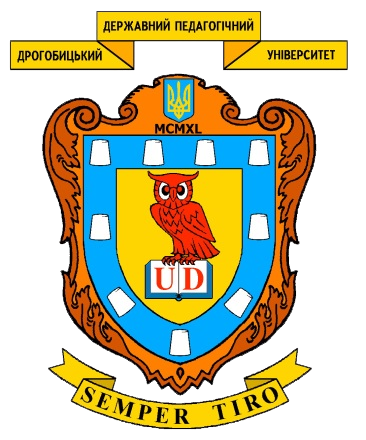SOCIO-CULTURAL CHARACTERISTICS OF THE VALUE ORIENTATIONS OF FORCED MIGRANTS
DOI:
https://doi.org/10.24919/2312-8437.49.256117Keywords:
internal migrants; value-semantic sphere; socio-cultural environment; conflict of valuesAbstract
The individuals personal value structure is the most im-portant factor in the process of socialization of the individual. The sys-tem of values, being a regulator of the activities and behavior of the indi-vidual, determines the main directions of his own activity, outlines the strategy of his life as a social being. The system of values, being a regu-lator of the activities and behavior of the individual, determines the main directions of his own activity, outlines the strategy of his life as a social being. The multifunctional and multifactorial socio-cultural environment influences on the process of forming the axiological choice of forced migrants. In the new socio-cultural environment, the value orientations of immigrants undergo certain transformations: rethinking their own value system, getting used to new values, accepting new values, recon-ciling new values with old ones. The period of adaptation of internally displaced persons to the new socio-cultural environment is quite intense in terms of assimilation of certain values and norms due to the inclusion of immigrants in the sys-tem of specific social ties that may create certain internal conflicts due to inconsistencies with existing but not stable points of views. The value-motivational sphere is a significant incentive to reeva-luate one՚s own vision of a specific situation and change one՚s attitude to it. On the one hand, this is a very important and useful process that allows you to learn to choose priorities for yourself and others, but on the other hand, such a reassessment is not always the right direction. Sometimes a person makes mistakes and it can lead to the wrong direction, reforming the value orientation of the individual. The degree of coherence between values, the possibility of their implementation depends on how fully the process of effective adaptation and successful integration of internally displaced persons into the new socio-cultural environment will take place. An empirical study has shown that the transformation and rethin-king of basic values, their replacement by the values of a particular socio-cultural environment is deeply experienced by migrants. Such ex-periences are reflected in their value-motivational sphere. In the value-motivational sphere of internally displaced persons, there is uncertainty, confusion and inconsistency between values, which is manifested in in-ternal conflict and internal vacuum. Such characteristics are a sign of dissatisfaction with the current life situation, "gap" in the system "consciousness – being". The studied features of the motivational and personal sphere can negatively affect the socialization of internal migrants in a new socio-cultural environment.
References
Канафоцька, Г.П. (2013). Формування цінностей сучасної людини: фактори, інституції, складові та чинники впливу. Механізми управління розвитком організаційної культури ЗНЗ: матер. Всеукр. наук.-практ. конф. (Київ, 4–5 квіт. 2013 р.). (с. 77–87). Київ.
Леонтьев, Д.А. (1997). От социальных ценностей к личностным: социогенез и феноменология ценностной регуляции деятельности. Вестник Московского университета. Серия 14: Психология, 1, 20–27.
Низовских, Н.А. (2000). Человек как автор жизни. Психосемантика жизненных ориентаций. Киров: Вятский гос. пед. ун-т.
Солдатова, Г.У., Шайгерова, Л.А., Калиненко, В.К., & Кравцова, О.А. (2002). Психологическая помощь мигрантам: травма, смена культуры, кризис идентичности. Г.У. Солдатова (Ред.). Москва: Смысл.
Стець, В.І. (2020). Зміст психологічної допомоги вимушеним переселенцям щодо перебудови ціннісно-смислових складових образу світу. Проблеми гуманітарних наук. Психологія, 47, 100–116. doi: 10.24919/ 2312-8437.47.229350.







